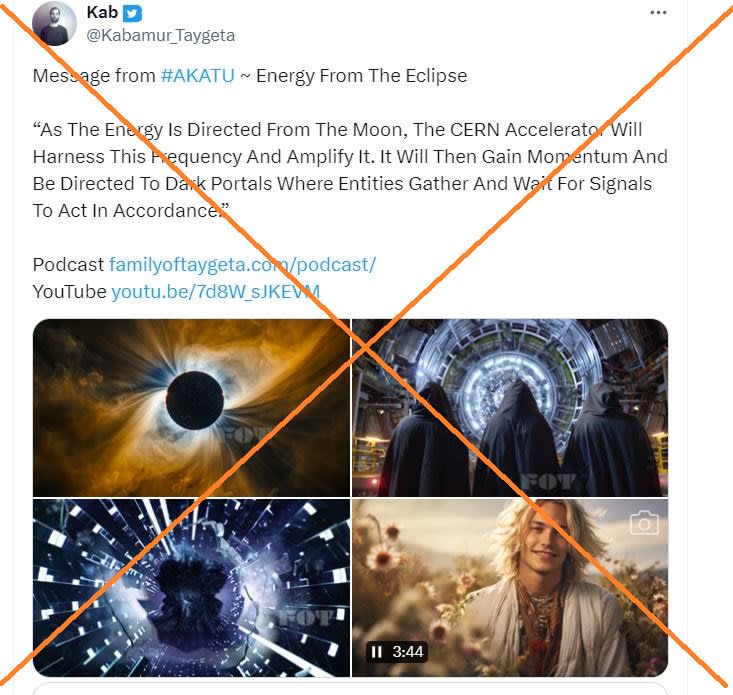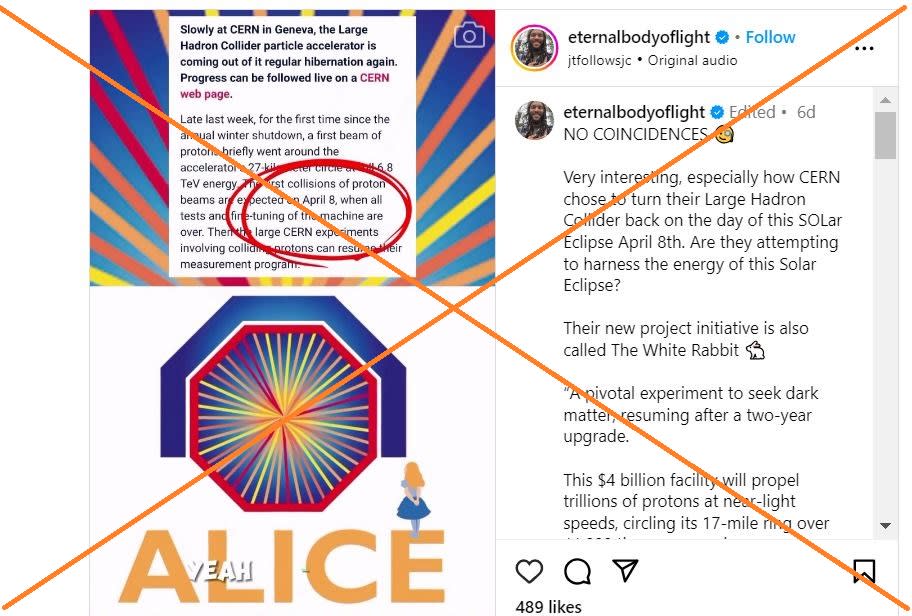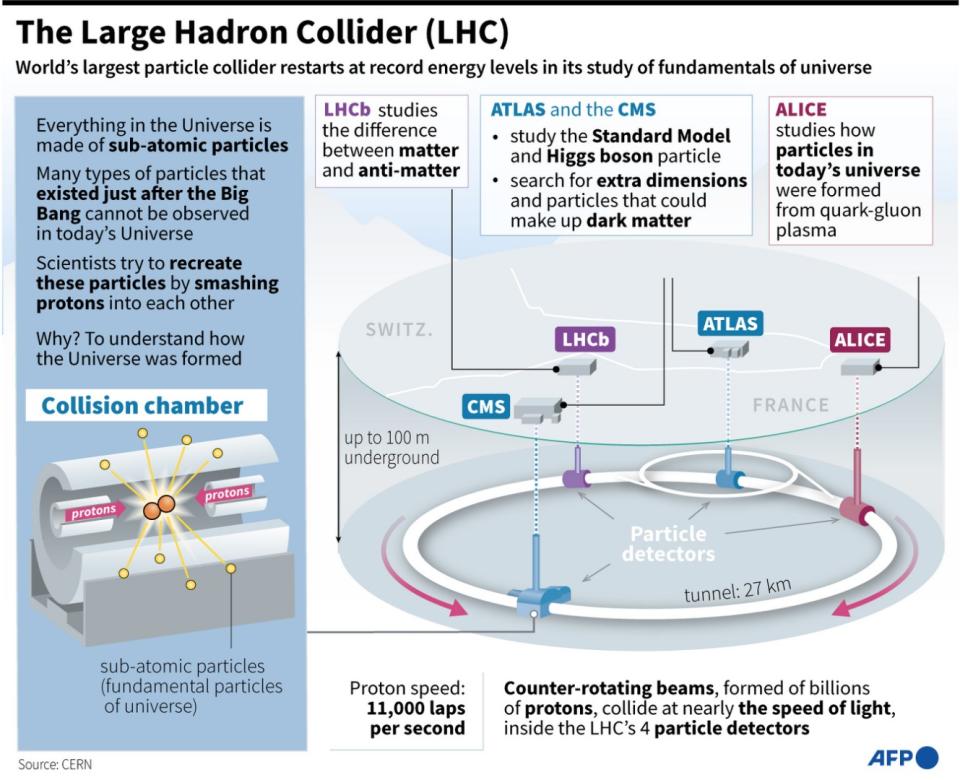CERN particle collider reboot unrelated to solar eclipse
Social media posts suggest a connection between the reboot of the world's largest particle collider and the April 8, 2024 solar eclipse -- with some claiming it is an effort to harness solar energy. But the European nuclear research lab that operates the Large Hadron Collider says it has conducted experiments since March, and the project has no direct link to astrophysics.
"Very interesting, especially how CERN chose to turn their Large Hadron Collider back on the day of this SOLar Eclipse April 8th. Are they attempting to harness the energy of this Solar Eclipse?" says an Instagram post published March 29, 2024, days before a highly anticipated solar eclipse across North America.
Another post on X says: "As The Energy Is Directed From The Moon, The CERN Accelerator Will Harness This Frequency And Amplify It. It Will Then Gain Momentum And Be Directed To Dark Portals Where Entities Gather And Wait For Signals To Act In Accordance."


Similar claims referencing the European Organization for Nuclear Research (CERN), a Swiss-based research facility, circulated elsewhere on X, TikTok and Threads.
CERN's Large Hadron Collider (LHC) uses a 17-mile loop of superconducting magnets to smash sub-atomic particles at close to the speed of light. The accelerator has been the subject of numerous conspiracy theories -- amplified in part by the Dan Brown novel "Angels & Demons," which includes a plot to steal antimatter from the lab.
CERN says on its website (archived here) that the LHC is restarting after a winter maintenance break and has been conducting experiments since March. The first stable beams returned April 5 (archived here).
The timing is unrelated to the eclipse.
"There is no link between the solar eclipse on Monday and what we do at CERN," said Arnaud Marsollier, head of CERN media relations, in an April 5 email.
He added that the research facility typically restarts its machines in early spring, and that the focus of the LHC "has little to do with astrophysics in a direct way."

CERN particle physicist Clara Nellist (archived here) also addressed claims linking the eclipse to the collider in a March 31 YouTube video (archived here).
"It's the regular running that starts on April 8, it just happens to coincide with an astronomical event," she says in the clip. "So the timing is a pure coincidence."
AFP has debunked claims that the LHC is opening up dangerous black holes capable of swallowing the Earth.
"Particles are hitting the atmosphere of the Earth all the time at much higher energies than we can create in the laboratory," David Miller, an associate physics professor at the University of Chicago who has collaborated on CERN research (archived here), previously told AFP.
"If a black hole is being created in the lab, it means it is being created in the atmosphere all the time."
AFP has debunked other claims about the eclipse here.

